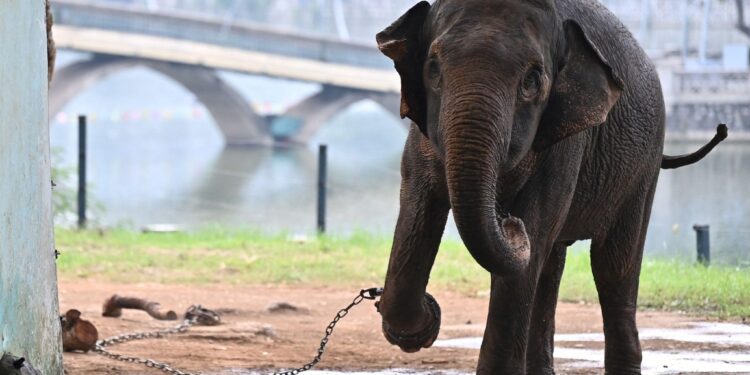The fate of two female elephants, Thai and Banang, has captured the attention of environmental activists and concerned citizens in Vietnam. Nearly 70,000 people have already signed a petition demanding their release in a natural park. The story has been widely covered by state media in recent weeks, highlighting growing concern for the welfare of these majestic animals.
Despite calls for their release, the female elephants still remain chained up at the zoo. Their keepers provide them with food in the form of grass and sugarcane, but the situation has sparked a passionate debate about their treatment. A zoo employee explained that broken electric gates have forced them to be chained for safety reasons.
However, Animals Asia activists argue against this perspective. They have issued a letter to the authorities requesting that Thai and Banang be released into the jungle of Yok Don National Park. The Vietnam Animal Eyes organization has also joined the cause, launching a petition in early August to support the relocation of the female elephants.
Zoo director Le Si Dung has a different opinion. He believes that releasing the female elephants into the wild would be “illogical.” He argues that due to their age, between 60 and 70, and their time in captivity for over a decade, they would not be able to survive on their own in the wild. Environmental organizations note that the population of wild elephants in Vietnam has declined dramatically, from about 2,000 in 1980 to about 100 in 2022. The debate over the fate of Thai and Banang reflects broader concerns about the conservation and well-being of the animals in Vietnam.










